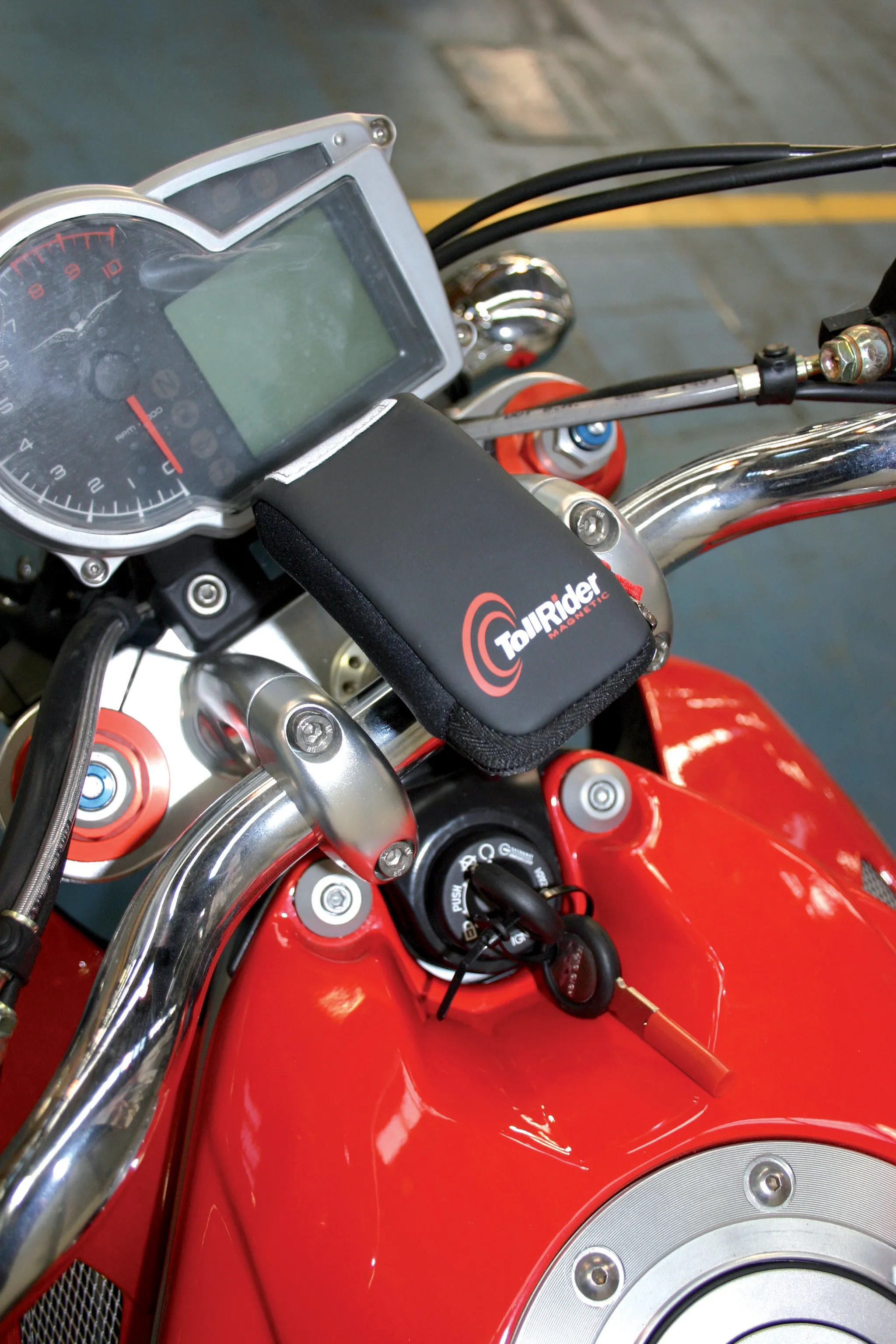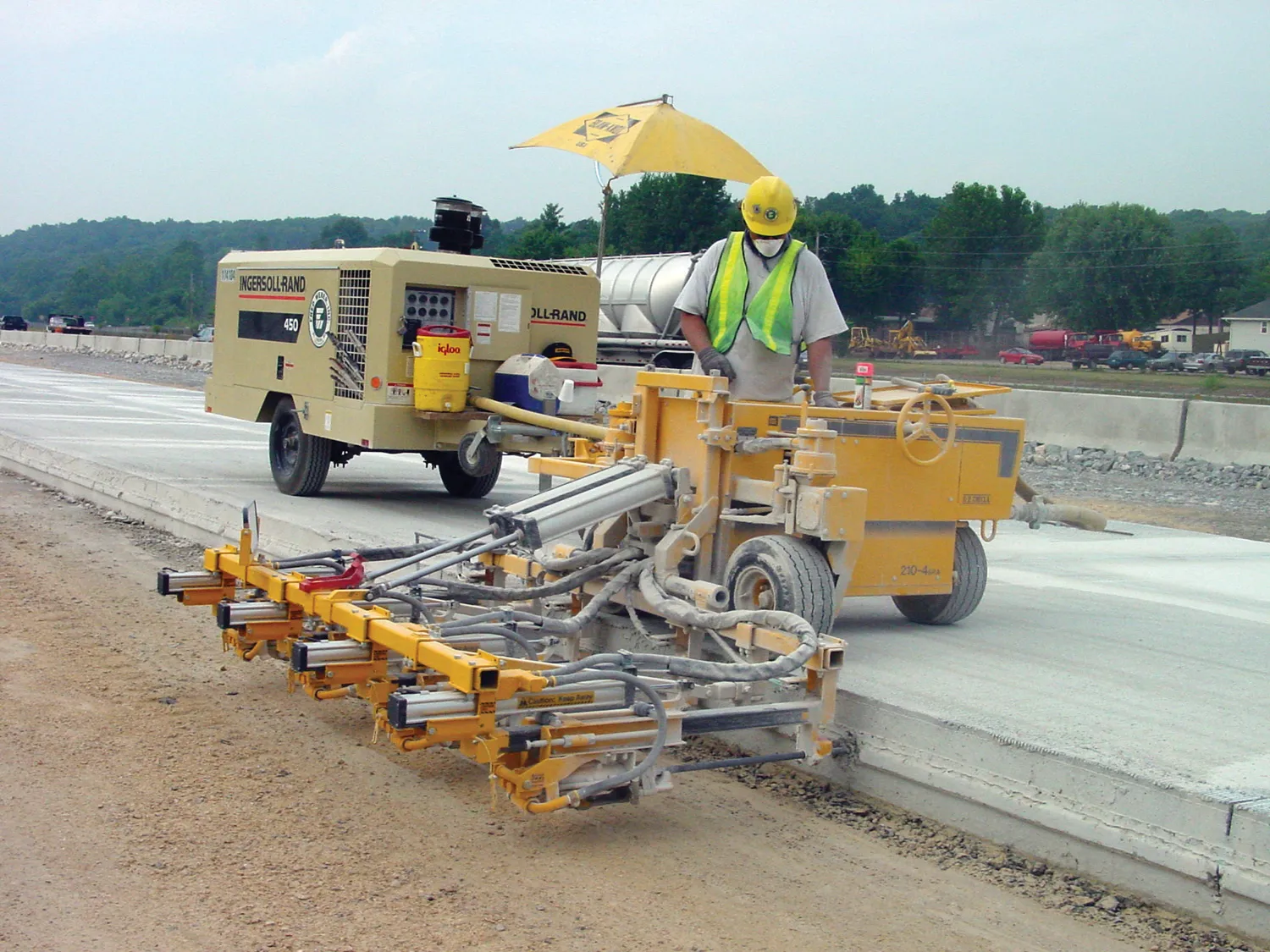An Australian inventor has developed the Tollrider Magnetic system as a solution for mounting electronic toll tags on motorcycles. Designed by Michael Egan, the concept means there is no need for a motorcyclist to stop to pay tolls on highways with free-flow technology. Egan entered into a joint agreement with John Sample Automotive (JSA) to develop this patented idea and after 12 months of testing, the concept is now accepted by Australian motoring bodies such as the RTA which had called for a solution for
July 23, 2012
Read time: 2 mins

An Australian inventor has developed the Tollrider Magnetic system as a solution for mounting electronic toll tags on motorcycles. Designed by Michael Egan, the concept means there is no need for a motorcyclist to stop to pay tolls on highways with free-flow technology. Egan entered into a joint agreement with John Sample Automotive (JSA) to develop this patented idea and after 12 months of testing, the concept is now accepted by Australian motoring bodies such as the RTA which had called for a solution for motorcycle riders using E-Tags.
The Tollrider Magnetic system features a patented magnetic lock that attaches the Tollrider to a motorcycle. The Tollrider is a purpose-made pouch that is said to be easy to attach and remove. This unit allows Electronic Toll Tags to be inserted and then mounted safely onto a motorcycle. For motorcycles with metal fuel tanks, the Tollrider simply latches straight into place. For motorcycles that do not have metal tanks, a handlebar clamp is included with the units. This clamp features a metal base plate which allows the Tollrider to be mounted onto the handlebars. Also supplied are three spacers to allow for different diameter bars.
The final design and styling of the Tollrider was handed to JSA product specialist Mark Cooper who headed a team to produce the final product using the latest in lightweight weatherproof materials. Tollrider comes in three sizes to suit all electronic toll tags available on the Australian market.
The Tollrider Magnetic system features a patented magnetic lock that attaches the Tollrider to a motorcycle. The Tollrider is a purpose-made pouch that is said to be easy to attach and remove. This unit allows Electronic Toll Tags to be inserted and then mounted safely onto a motorcycle. For motorcycles with metal fuel tanks, the Tollrider simply latches straight into place. For motorcycles that do not have metal tanks, a handlebar clamp is included with the units. This clamp features a metal base plate which allows the Tollrider to be mounted onto the handlebars. Also supplied are three spacers to allow for different diameter bars.
The final design and styling of the Tollrider was handed to JSA product specialist Mark Cooper who headed a team to produce the final product using the latest in lightweight weatherproof materials. Tollrider comes in three sizes to suit all electronic toll tags available on the Australian market.








